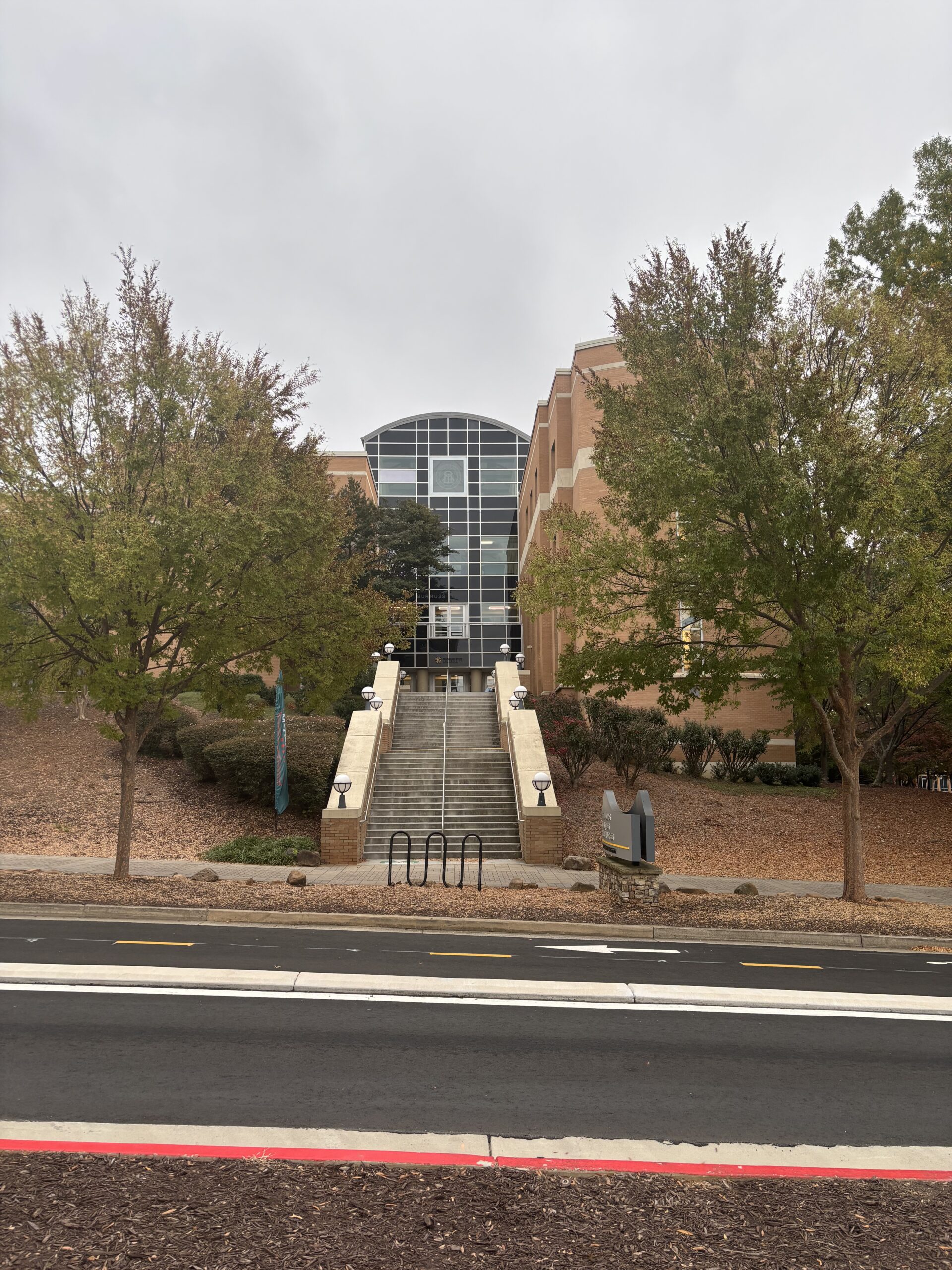Two senior economics lecturers speak their peace on one of former president Trump’s most ambitious economic programs.
Former president Trump has made the economy one of his central campaign focuses. Lauding American economic performance during his first term, and vowing to double down on what “worked,” an unsurprising emphasis has been placed on trade and tariffs.
The Trump administration became known for, among other things, an aggressive tariff policy. Most notably, the United States entered a trade war with China that lasted several years. This time around, Trump wants to do even more.
Among an expansive new tariff regime, the former president has proposed a universal tariff on all imported goods from all countries which could reach 20%.
Professor Michael Patrono, a senior economics professor at Kennesaw State, spoke first on the philosophy behind tariffs and their potential shortcomings. “The big problem with tariffs is the good they do is more than offset with the harm they do,” he began.
He went on to explain his main issue with tariffs, creating an example based around American steel.
“Let’s put a tariff on steel imports. Of course, the whole purpose of that would be to protect American steel companies…but the American companies that buy steel, for instance, caterpillar tractor Company, buys steel to make a caterpillar tractor,” he explained.
“Now, if they have an American factory, they have to pay the much higher American steel price because of the tariff, and so when they compete against Komatsu, which is a Japanese tractor company, then all of a sudden Caterpillar sales go down in the world because Komatsu is able to take their business away from them, so the tariff in this example will help the steel worker, but will hurt the caterpillar tractor worker.”
He went on to speak about the perception of tariffs versus their actual impact, saying, “Tariffs generally have a very positive appeal to people because they think they’re doing a good thing…what people aren’t looking at is the damage being done to the other American workers.”
Next, the professor discussed potential exceptions when tariffs may be necessary, specifically concerning national security concerns.
“Now there are exceptions…if the Chinese were making missile parts for an American company to buy the cheap Chinese missile parts would also make us dependent on the Chinese, and if they are [an] enemy, that’s a dangerous thing.”
He continued, “so you could have a legitimate policy that says no importation of Chinese missile parts because we don’t want to be dependent on China for the missile parts.”
On Trump’s specific tariff plan, Professor Patrono emphasized how the policy could affect America’s global relationships, contrasting America’s ties with England to those of China.
“Putting a tariff on Chinese missile parts, you could make a strong national security argument for it, but the general across the board, which will apply both to our friends because it’s going to put the same tariff on England, which is a really good friend country of ours as we put on China, which could be a potential enemy country…to treat everybody with the same tariff…you pretty much say well, not such a good idea.”
Professor Vivian Kirby, also a senior economics professor at Kennesaw State, had a different perspective on the tariff issue, making it clear from the beginning the positive potential she saw in them.
She first touched on the foreign exchange strategies of other countries, specifically Japan, saying, “Japan’s government has been dedicated to pursuing economic growth via exports. So they are focused on selling as much of what they produce as possible into foreign markets and in particular the US market.”
She continued, “they’re basically committed to undervaluing their own currencies relative to the US dollar to maintain high export levels into the US market.”
She went on to explain how she felt other countries were playing an unfair trade game with the U.S. and the effect that imbalance has had on domestic production saying, “Our government has allowed foreign countries to begin competing unfairly against US producers to the point where in order to stay competitive, our producers were forced to begin offshoring.”
When asked how she felt Trump’s tariff plan may affect prices for American consumers, she said “It will be an insignificant influence on their budgets…these tariffs and his proposed reduction in business taxes and and no tax on Social security will drive up consumption spending overall in this country and it should encourage businesses that went completely offshore…to come back and bring back some of their production back into the US.”
She closed her thoughts by emphasizing the positive effect she believed Trump’s tariff plan would have for American businesses and workers.
“We need to bring back the capability of producing goods once again in America. And we need to create an environment conducive to attracting [businesses and production back into America] so that we can once again, provide decent wage paying jobs to not just white collar workers, but blue collar workers.”
Through all of the rhetoric, these are the conclusions of some of Kennesaw State’s foremost economics experts.


